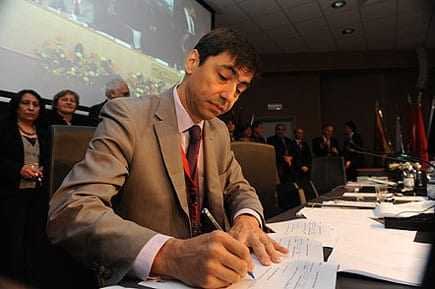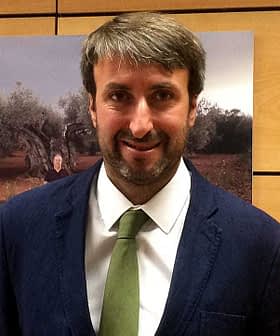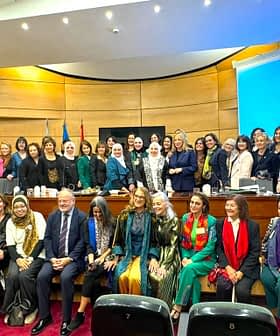International Olive Council Executive Director Jean-Louis Barjol
Fallout from the Arab Spring is among factors in the current paralysis of International Olive Council activities and non-administrative spending.
The IOC found itself in the “difficult” and “extraordinary” situation of being unable to spend more on administration in a month than the monthly average of its administrative budget last year, according to its executive director Jean-Louis Barjol. And it can’t do anything that would generate other costs — including traveling to Penang to represent the sector at the important Codex Committee on Fats and Oils meeting starting on Monday.
Even if it did attend that meeting, it would be without an official stance because its Council of Members has yet to approve various reports prepared by IOC committees, including on other pending matters such as possible changes to chemical parameters for olive oil tests.
The 100th session of the Council was due to vote on many recommendations — and on the IOC budget for 2013 — at what should have been its closing sitting last November 19 – 23 in Madrid. However, on the day voting was due to occur, quorum was lost, Barjol said.
He would not say why nor comment on a report in Olimerca magazine that the members from Turkey and Israel had walked out in dispute over a proposed new IOC staffing agreement.
Meanwhile, holding another meeting is not proving easy. The power to convene a Council meeting is held by the IOC president, a role that rotates alphabetically through member countries from one November to the next.
It was Syria’s turn from November 2011 but the country — where an estimated 70,000 have died in the conflict following peaceful anti-government protests in March 2011 — has yet to pay its IOC contribution for 2012.
The role thus passed to the vice-presidency country, Tunisia, also in crisis, and specifically to former IOC executive director Habib Essid. In March 2011, Essid was appointed Minister of the Interior in the interim government of Tunisia after the Arab Spring uprising there a few months earlier saw the overthrow of the Ben Ali government, under which he had also served.
Barjol said Essid had seen fit to cancel a closing sitting of the Council’s session proposed for next Monday and Tuesday, and had yet to set another date.
There is no IOC deputy vice-president and Tunisia is due to rotate into the presidency for the 101st Council session, with Turkey as vice-president.
IOC in limbo over work to increase shipping transparency, admit Uruguay
Barjol, speaking to Olive Oil Times in Spanish, said the situation was “a little strange” and had “paralyzed the IOC in terms of activities.”
Among IOC projects affected are its work with the World Customs Organization to harmonize tariff codes, which currently cover only three categories: virgin, non-virgin and olive pomace oil, and don’t distinguish between virgin and extra virgin olive oil, or lampante oil.
Barjol said the IOC wanted more transparency in the codes and as a first step sought recognition of lampante oil in amended tariff codes due to apply from 2017. If agreement is not achieved by this year, that opportunity will be missed and another won’t come until 2022, he said.
Also stalled is approval of Uruguay’s application to join the IOC and determination of the financial contribution it should make.
A European Commission Agriculture spokesperson said that under its established rules, the IOC had to function with “provisional twelfths” until its Council of Members adopted the 2013 budgets. This means it has available each month an amount equal to one twelfth of its administrative budget for last year.





